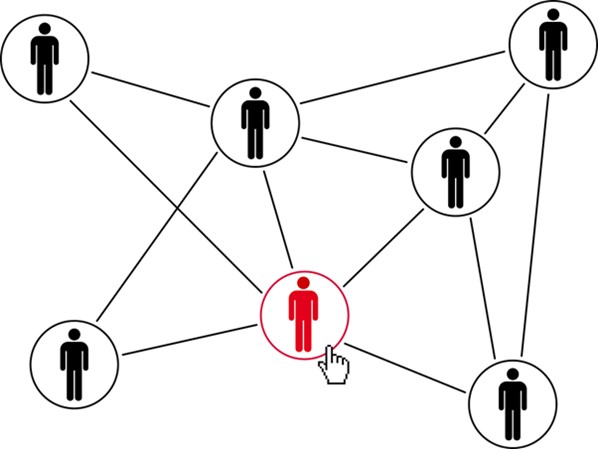
A human resources manager is responsible for managing all areas of human resources within an organization. Human resources managers will play a key role in the success of any company, as they are responsible for making sure their team is working efficiently and productively. There are many responsibilities that a human resources manager may have, and understanding each of them is important if this seems like an interesting career path for you.
1. Recruiting and Hiring
One of the most important roles a human resources manager has is recruiting new talent for their organization. With hundreds of applicants applying each day, it’s up to the human resources manager to find those who are best suited for the position and bring them in for an interview.
This process can be difficult, as there may be multiple candidates that are equally as qualified for the position. As any good change management postgraduate can tell you, it is important to always make sure you’re hiring those who will fit into your company culture and be a good personality match with their colleagues. The reason you need to look at more than just job expertise is that as a human resources manager, you will also be responsible for training new hires and developing their skills.
That means that if someone would make a good fit for the team, but could use some additional guidance when it comes to skill development, they would be an ideal candidate. On the other hand, if there are candidates that are good on paper, but lack some of the personality traits that would be best for the job, then they may not be as good of a fit.
2. Maintaining Employee Relationships
The human resources manager also has the responsibility of keeping their employees happy and satisfied with their jobs. They do this by creating a healthy work environment and ensuring that all employees have the resources they need to be successful.
This can mean providing opportunities for interpersonal relationships between colleagues, or simply making sure their team has everything they need- like supplies, equipment, etc. Turning employees into a successful team requires a human resources manager to be extremely organized and in tune with what is going on at all times. It’s important to note that the human resources manager is not responsible for managing day-to-day work processes, but they do have the authority to give input and be a part of decision-making.
In that sense, working with other managers on certain projects can be beneficial, as they are able to provide input on what their team needs.
3. Compensation and Benefits
Another area that a human resources manager oversees closely is compensation and benefits packages. This will allow them to ensure that their team is being paid fairly for what they contribute, so no one feels as though they are being undervalued.
In a similar vein, a good human resources manager will also be able to recommend appropriate benefits packages that can benefit their team. By understanding the value of different kinds of compensation and being able to demonstrate that value effectively, the human resources manager can ensure that their team is happy and motivated. That can mean anything from additional vacation time, help with healthcare costs, to other financial incentives.
However, HR also works for the company and that means that you shouldn’t offer perks to the employees if that might damage the bottom line. It’s a fine line to walk, but a human resources manager has the authority and responsibility to advocate for what is best for all parties involved.
4. Enforcing Employee Policies
This is one of the most important responsibilities that a human resources manager has, as it ensures that their team abides by the company policies that have been set in place.
This means making sure everyone complies with standards for safety in the workplace, follows the rules when it comes to appropriate conduct, and always abides by company guidelines regarding social media. At larger companies, they also have a responsibility to make sure that their employees are aware of what is expected of them when it comes to things like diversity hiring practices and other required programs. Making sure you’re being heard without looking like you’re too commanding is something that all HR managers have to learn.
People need to feel like they are being listened to, which is why it’s important not to seem aggressive or dismissive, while also being assertive.
5. Developing Workplace Culture
A great deal of the responsibility that a human resources manager has is related to culture building. Having an understanding of workplace culture and how it is created, as well as what makes for good workplace culture will enable them to make recommendations and suggestions based on their findings.
From setting up rooms and meeting places for employees to interact to deciding what events will be the most successful, it’s important for an HR manager to have an understanding of the dynamics that help create a healthy and productive workplace. In short, it is essential that they understand how to motivate their employees and facilitate friendly relationships within the company. It allows them to get more out of their team and allows them to be productive and happy while contributing to the greater good of the company.
Providing guidance and limits to employees at the same time is one of the more challenging parts of this job. If you allow people to go too far, then they might feel as though there are no boundaries and won’t respect company policies.
6. Work/Life Balance
Another important aspect of an HR manager’s job is encouraging the idea of work-life balance. By giving examples and making recommendations, they can help their team understand what this means for them personally. This could include advocating flexible working hours (to allow for things like childcare) or scheduling meetings that are less intense for employees who want to get away from the office.
One way to encourage a sense of work-life balance is by making sure things like company parties and other outings are an option for employees, but not mandatory. That way, people can choose whether they want to participate or not and still feel as though they have the opportunity to contribute on a more personal level.

A human resources manager has several different responsibilities that are all essential to ensuring that the company is running smoothly. They have to listen, help create a culture within the workplace, enforce policies, and facilitate work-life balance in order for their team to be able to do their best work. It takes a special kind of person to be able to do this job effectively, as they not only have to communicate with other employees but also those who are higher up on the corporate ladder. It’s a challenging and rewarding job, one that is extremely important to the overall health of the company.




